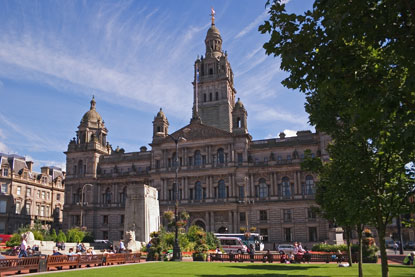Scotland’s 32 unitary authorities should be merged into just 19, given full control over their own finances and encouraged to install directly elected mayors, according to Reform Scotland.
 In a report published today, the think-tank blames the high number and diminishing autonomy of Scotland’s local authorities for the low voter turnout of 38% at the recent local elections.
In a report published today, the think-tank blames the high number and diminishing autonomy of Scotland’s local authorities for the low voter turnout of 38% at the recent local elections.Devolution, it says, has stopped at Holyrood and now needs to be extended to councils, most decisively by giving them control over raising their own revenues.
‘Given the current limitations of the fiscal powers of the Scottish Parliament, at present this could be done only by giving councils full power over council tax and non-domestic rates,’ the report argues.
Renewing local government contends that the large number of councils left by the 1995 reorganisation has been an excuse to recentralise power at Holyrood.
It suggests reducing numbers, initially by merger rather than re-organisation, and giving councils control over health and policing in place of the current 14 health boards and eight (soon to become one) police boards. It also wants a radical reduction in the number and scope of quangos.
Other proposals include locally negotiated devolution of power from local authorities to community councils and a diverse municipal structure that would allow development of appropriate local committee systems.
It sees such arrangements as particularly suited to handling planning issues, and thinks fiscal control would give councils an incentive to treat development as a source of revenue.
Despite the lack of voter enthusiasm for mayors in England, the report suggests that directly elected mayors be created where council choose them or where 5% of voters sign a petition.
Ben Thomson, Reform Scotland’s chair, said his grouping saw the future of local government as a non party-political issue, and wanted to start ‘a vital debate’.
He said: ‘Devolution has been limited, and it has stopped at Holyrood. Indeed, the Scottish Parliament has reversed devolution by sucking up council powers. This has to stop. For Scotland’s good, we’re calling on everyone to work together to renew local government.’




















